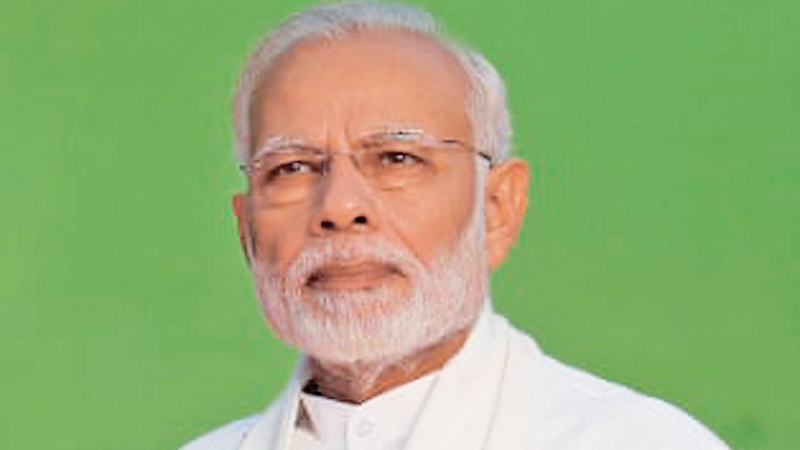The world’s largest exercise in democracy looms in 2019. In the beachside towns of Kerala state, the mountain villages of the Himalayas and across the dusty cities of the Gangetic plain, an estimated 850 million people will cast their votes in India’s national election sometime between March and May. And the race just got competitive.
A few months ago the Prime Minister, Narendra Modi, looked invincible. His party had followed its thumping national election win in 2014 with a run of victories in India’s largest states. The Congress party, which ushered India into independence 70 years ago and had been its default ruler since, was reduced to a rump, with leaders from Modi’s Bharatiya Janata Party (BJP) boasting the country would soon be ‘Congress-mukt’ (Congress-free).
But a few months is a long time in Indian politics. Modi enters 2019 with his aura shattered. In December, Congress roared back to life, winning three of a bundle of state elections billed as the ‘semi-finals’ to the national contest next year. Opinion polls show Indians adore Modi. But the state elections showed they are willing to vote against his party, too.
 Rahul Gandhi |
“The BJP lost a lot of ground,” says Gilles Vernier, a political scientist who teaches at Haryana state’s Ashoka University. “Its vote share decreased significantly. And its more important source of worry is that this drop was almost uniform across urban and rural areas.”
India is bewilderingly complex. Parties hone drastically different campaign pitches for different states. But if any larger theme could decide Modi’s fate, it is jobs.
Though India’s economy is growing faster than that of any other major country, it is not doing so quickly enough to create work for the expanding population. Each month for the next several years, an estimated 1 million Indians will turn 18. Unemployment has been ticking upwards. India’s railways ministry said it received 20 million applications for about 100,000 jobs in March. Modi says the published statistics are unreliable and do not capture the enormous proportion of the country who work for cash in the informal sector. But discontent is palpable: the Pew Research Center found Indians’ confidence in the economy had fallen by 27 percentage points in the past year, the largest drop of any country it measured.
Separate but linked is deep despair among India’s farmers, who are struggling with steep falls in the prices of staples such as chickpeas, onions and oilseeds, and whose mood can sink a government in a country where 70 percent of people still directly or indirectly earn their living from agriculture. Farmers have marched on Delhi five times in the past 12 months. Some economists speculate rural India is still reeling from Modi’s surprise decision in 2016 to invalidate a majority of the currency in the economy, which led to months of cash shortages and knocked an estimated two percent off the country’s GDP.
These economic missteps would matter less if Modi had not promised so much in 2014. At raucous election rallies across India, he boasted he would create 10 million jobs and unearth enough untaxed wealth to deposit Rs. 15,000,000 (£16,000) in every citizen’s bank account – remarks that are likely to be repackaged as Congress election commercials and social media posts as the campaign ramps up.
“The reality is that after four years there has been little change in people’s lives and state structures have shown no signs of improvement,” says Verniers. “The state’s capacity to deliver public services has not been reformed or altered in any significant way.”
If the BJP grows desperate, “there may be a temptation to shift towards more polarising issues such as national security and internal threats,” he adds. That would mean a campaign of fevered warnings about protecting cows (from Muslims), saving Hindu girls (from conversion to Islam) and building a temple in the northern town of Ayodhya (on the ruins of a demolished medieval mosque).
Modi is still enormously popular, especially compared with his most prominent challenger, the Congress party’s president, Rahul Gandhi. That appeal should ensure he is still prime minister this time next year. But analysts predict his victory this time will be less emphatic, and he will be reliant on coalition partners who will demand their spoils.
“Last election, with the BJP winning a majority of seats by itself, was an aberration,” says Prof Katharine Adeney, from the Asia Research Institute at the University of Nottingham.
Modi is the most virulent Hindu nationalist ever to occupy the prime ministership. A victory would give him five more years to reshape the very idea of India from its most influential political vantage point. But a few months out from the polls, it is clear voters will be entering booths asking a more prosaic question: “What have you done for me lately?” (Source: The Guardian)



Add new comment